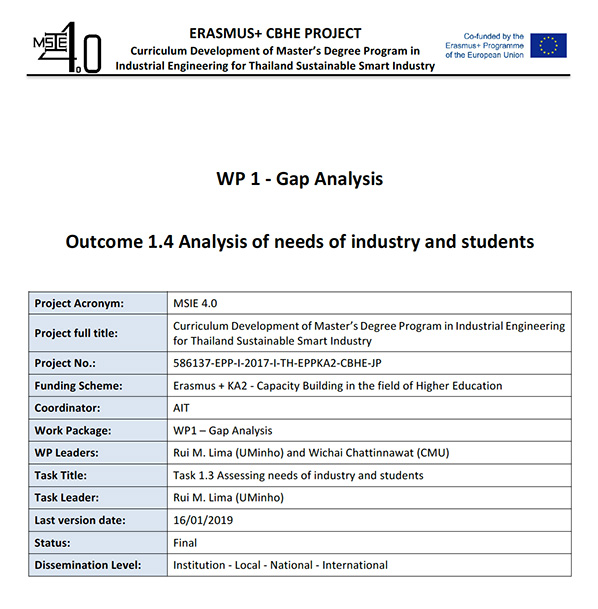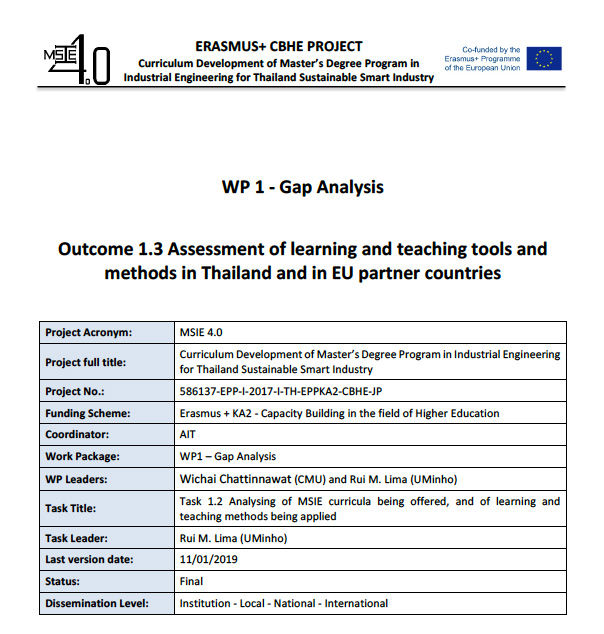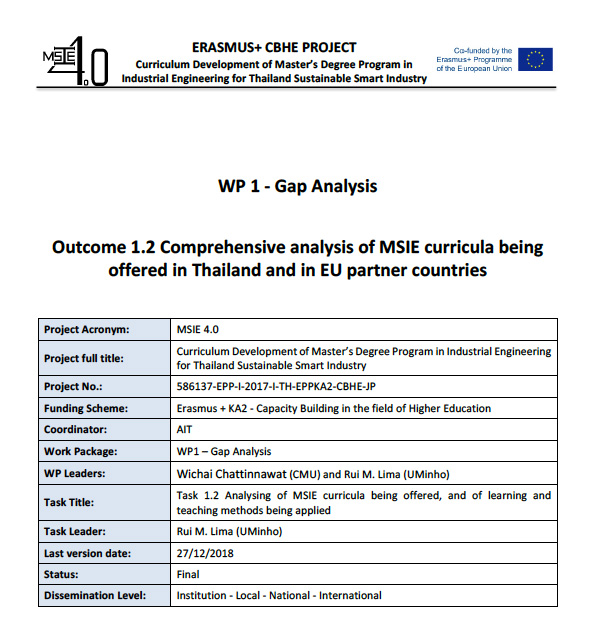This report presents a perspective on the needs of companies and students towards Industry 4.0 development. 72 companies from Thailand (50) and EU (22) and 450 industrial engineering master students from Thailand (232) and Europe (218) participated in surveys. The main results show that, for Industrial Engineering, there should be considered three main technologies needed by industries: Big Data, Sensor and Mobile Devices. Each of these technologies was crossed with the main domains of applications needed by industries: Product Development, Production Technology, and IT-based Integrated Systems. The area considered more important to be developed in the curriculum is Big Data applied to production technology/systems, immediately followed by product development. Moreover, the results of data analysis of the questionnaires also show the high importance of transversal competences, both for industry and for students, being possible to identify the three most important as Adaptability and ability to change, Teamwork and Communication skills.
OUTCOME 1.3 ASSESSMENT OF LEARNING AND TEACHING TOOLS AND METHODS IN THAILAND AND IN EU PARTNER COUNTRIES
This report presents an analysis of teaching and learning methods being applied currently in Thailand and European partners’ countries, being part of the WP1 progress reports. The process of analysis was based on data collected in two different ways. First the project’s team collected data from 23 best practices of Industrial Engineering (IE) or related master programs, being 13 from Thai programs and 10 from European programs. Additionally, the project’s team collected the perceptions on most used and most effective teaching and learning methods, from Thai and European teachers participating in the project.
Results from the questionnaire show that among European and Thai teachers, lecture is still the most used teaching and learning approach. Additionally, among Thai teachers may exist a belief that teacher-centered approaches are more effective for teaching learning. The analysis of the best practices shows that in the European selected programs is much more common to develop Project-Based Learning based on interdisciplinary problems, interacting with industrial partners.
The full report is available here.
Outcome 1.2 Comprehensive analysis of MSIE curricula being offered in Thailand and in EU partner countries
According to a comprehensive analysis of MSIE curricula offering in Thailand and European partner countries, the structure of higher education in the participating countries in the project are different ranging from three years in Portugal, 3.5 years in Poland (Engineer degree), to 4 years in Romania and Thailand. Moreover, the way the learning time is measured is also significantly different. In Thailand, credits are measured by class hours and in Europe, the European credit system is based on the total learning time, including non-class time. Nevertheless, the master programs have a common structure in both Thailand and European countries, consisting of a two-year program (exception for Poland with a 1.5-year program), in which the thesis is developed during two semesters of the second year.
Most of the Thai master programs have a strong emphasis on optimization, and European programs have a higher emphasis on production management and production systems design.
The analysis of curricula shows that Thai programs, in general, do not define expected outcomes explicitly for every course and lack of attention in transversal competences.
The full report is available here.



